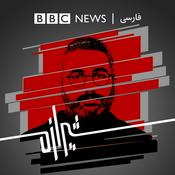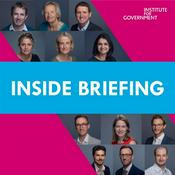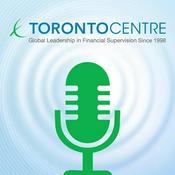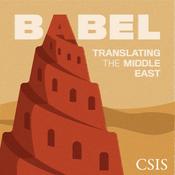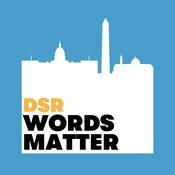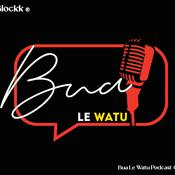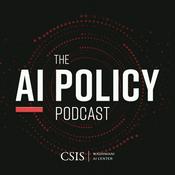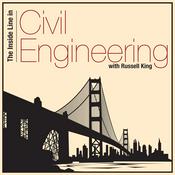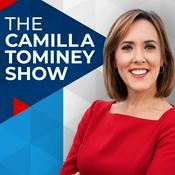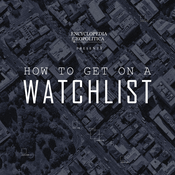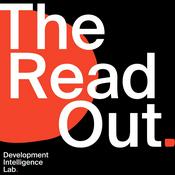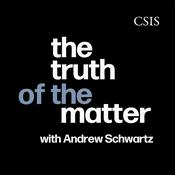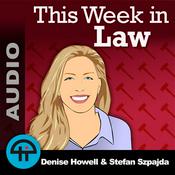32 episodes

Unpacking housing challenges in African cities
2025/12/17 | 1h 6 mins.
The housing challenge in African cities is far from consistent. With differing historical, sociopolitical and economic contexts, cities are seeing urbanisation play out along differing trajectories – impacting issues around housing demand, supply and justice.ACRC’s housing domain co-leads Alexandre Apsan Frediani and Ola Uduku join Diana Mitlin for a conversation around housing in African cities, drawing on insights from the seven cities studied in their report: Accra, Addis Ababa, Dar es Salaam, Freetown, Lagos, Lilongwe and Nairobi.Highlighting key issues and observations from the city research, they discuss the importance of local government engagement, the significant challenges facing low-income residents around navigating rental markets and accessing housing finance, and the need for more sustainable construction approaches and building materials.They emphasise the value of building reform coalitions and developing collaborative research approaches in order to influence housing policy and programming at the city level, also noting the potential that leveraging global issues such as climate change could have to drive sectoral reform.> Read more in ACRC’s housing domain reportAlexandre Apsan Frediani is a principal researcher in the human settlements group at the International Institute for Environment and Development (IIED) and co-lead of the ACRC housing domain.Ola Uduku is head of school at the Liverpool School of Architecture and co-lead of the ACRC housing domain.Diana Mitlin is professor of global urbanism at The University of Manchester’s Global Development Institute and CEO of ACRC.----Music: Brighter Days | Broke in SummerSounds: ZapsplatThis podcast presents the views of the speakers featured and does not necessarily represent the views of the African Cities Research Consortium as a whole.Stay up to date with the latest publications, announcements and insights from the African Cities Research Consortium:> Website> E-news> Bluesky> LinkedIn> YouTube> X (Twitter)

Fortifying food systems in Lagos
2025/10/09 | 47 mins.
As in many cities worldwide, food production and management in Lagos is hugely complex – involving many different actors, shaped by various political dynamics and deeply intertwined with many other urban systems.With around 80% of food consumed in Lagos brought in from outside the city, the average household faces numerous challenges to getting food onto the table. Conflicts in other parts of Nigeria can cause difficulties with transportation, which then impacts costs and produce quality. Politics within the food distribution value chain can also complicate food access, with different ethnic and gender dynamics in some city markets affecting food prices and availability. Food waste is another key issue, with efforts to manage household organic waste lagging behind similar attempts to tackle plastic waste in the city.Yet, as Ismail Ibraheem, Taibat Lawanson, Folasade Adeboyejo and Deji Akinpelu discuss in this podcast episode, there are opportunities for improvements across the food system in Lagos, which could help make the city healthier and more liveable. From increasing local food production, as outlined in the Lagos State government’s agricultural roadmap, to building reform coalitions and implementing policies to strengthen the food waste value chain, they explore possible ways forward to enhance food systems and security in the city.> Read more in ACRC’s Lagos city reportIsmail Ibraheem is director of International Relations, Partnership and Prospects (IRPP) at the University of Lagos and ACRC’s uptake director.Taibat Lawanson is professor of urban management and governance at the University of Lagos, Leverhulme professor of planning and heritage at the University of Liverpool and was the Lagos city lead for ACRC’s foundation phase research.Folasade Adeboyejo is a PhD student at the University of PlymouthDeji Akinpelu is co-founder of Rethinking Cities, an advocacy group working on urban development issues in Lagos, and part of the ACRC Lagos uptake team.----Music: Brighter Days | Broke in SummerSounds: ZapsplatThis podcast presents the views of the speakers featured and does not necessarily represent the views of the African Cities Research Consortium as a whole.Stay up to date with the latest publications, announcements and insights from the African Cities Research Consortium:> Website> E-news> Bluesky> LinkedIn> YouTube> X (Twitter)

Understanding urban property tax with Samuel B Biitir
2025/5/16 | 31 mins.
As urbanisation accelerates across Africa, cities are under growing pressure to deliver essential infrastructure and public services – such as water, sanitation, drainage and electricity. Yet this expanding responsibility is unfolding in a context where sustainable funding and reliable financing mechanisms remain limited or entirely absent, leaving many local governments struggling to meet rising demands.So, how can African cities manage their expanding expenditure responsibilities, particularly in the face of persistent funding shortfalls? One potential solution lies in property taxation – a levy applied to the ownership, transfer or occupation of land and physical property.Ahead of an upcoming ACRC workshop in Accra, Chris Jordan is joined by Samuel B Biitir for a conversation around the challenges and opportunities of urban property taxation in African cities. With a particular focus on the Accra context, they discuss how property taxation could help to improve essential urban infrastructure and services, the need for political buy-in, the potential benefits and blockages posed by digitalisation, and the importance of transparency when it comes to securing citizen support.> Read more about ACRC’s urban property tax workshop in AccraSamuel B Biitir is a senior lecturer in the Department of Land Management at SD Dombo University of Business and Integrated Development Studies, and led ACRC's land and connectivity domain research in Accra.Chris Jordan is communications and impact manager for the Global Development Institute at The University of Manchester, and ACRC's communications manager.----Music: Brighter Days | Broke in SummerSounds: ZapsplatThis podcast presents the views of the speakers featured and does not necessarily represent the views of the African Cities Research Consortium as a whole.Stay up to date with the latest publications, announcements and insights from the African Cities Research Consortium:> Website> E-news> Bluesky> LinkedIn> YouTube> X (Twitter)

Action research spotlight: Healthy school meals in Nairobi
2025/3/17 | 31 mins.
School feeding programmes are a vital safety net for vulnerable children, providing them with healthy and nutritious meals that they might otherwise miss out on.Such initiatives are not new and have run in Kenya in different forms for decades; in Nairobi, for example, the county government has an existing school feeding programme in public schools. But the current programme does not apply to informal private schools, meaning that the majority of children living in the city’s informal settlements have been excluded from the government initiative. An ACRC action research project aims to fill this gap.In this episode, Veronica Mwangi, researcher and lecturer of economic geography at the University of Nairobi, joins Chris Jordan to talk about the issue of healthy diets and nutrition in African cities – particularly among children living in Nairobi’s informal settlements. They discuss the various economic, market-related and household-level factors hindering access to nutritious diets in these settlements – such as low incomes, high food prices and cultural practices – highlighting malnutrition and food insecurity as major concerns. They explore the potential that expanding the existing school feeding programme has to address these issues and improve the nutrition of children living in informal settlements, outlining how the action research team is working closely with the community to co-create an affordable, sustainable school feeding model that can be rolled out across informal schools.> Read more about ACRC’s school feeding programme action research projectVeronica Mwangi is a researcher and lecturer of economic geography in the Department of Geography, Population and Environmental Studies at the University of Nairobi.Chris Jordan is communications and impact manager for the Global Development Institute at The University of Manchester, and ACRC's communications manager.----Music: Brighter Days | Broke in SummerSounds: ZapsplatThis podcast presents the views of the speakers featured and does not necessarily represent the views of the African Cities Research Consortium as a whole.Stay up to date with the latest publications, announcements and insights from the African Cities Research Consortium:> Website> E-news> Bluesky> LinkedIn> YouTube> X (Twitter)

Why do land brokers matter in African cities?
2025/1/10 | 52 mins.
Recently published ACRC research, exploring land and connectivity in African cities, found “land brokers” to be significant players within urban land markets. In Mogadishu, Somalia and Kampala, Uganda in particular, the research found that brokers play a prominent role in influencing land dynamics in the cities – acting as intermediaries in transactions and often directly impacting land prices.In this episode, ACRC’s land and connectivity domain lead Tom Goodfellow is joined by Abdifatah Tahir from Mogadishu and Eria Serwajja and Muhamed Lunyago from Kampala for a conversation around the role of land brokers in urban land markets in African cities.They discuss the key role that brokers play in connecting buyers with sellers and facilitating transactions, along with the influence they have over land prices. Highlighting issues that arose in the ACRC research, they also talk about concerns around legitimacy, trust and transparency within brokers’ activities, land value discrepancies, and the need for regulation.> Read more in ACRC's land and connectivity domain reportTom Goodfellow is professor of urban studies and international development at the University of Sheffield and co-led ACRC's land and connectivity domain research. Abdifatah Tahir is a research fellow at the University of Sheffield and was formerly a postdoctoral research fellow with ACRC, working on the land and connectivity domain team in Mogadishu.Eria Serwajja is a lecturer in the department of development studies of Makerere University in Uganda and was part of the ACRC land and connectivity domain team in Kampala.Muhamed Lunyago is a PhD fellow at the Makerere Institute of Social Research (MISR) at Makerere University in Uganda and was part of the ACRC land and connectivity domain team in Kampala. ----Music: Brighter Days | Broke in SummerSounds: ZapsplatThis podcast presents the views of the speakers featured and does not necessarily represent the views of the African Cities Research Consortium as a whole.Stay up to date with the latest publications, announcements and insights from the African Cities Research Consortium:> Website> E-news> Bluesky> LinkedIn> YouTube> X (Twitter)
More Government podcasts
Trending Government podcasts
About African Cities
Listen to African Cities, The Fact Hunter and many other podcasts from around the world with the radio.net app
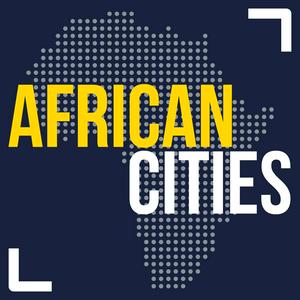
Get the free radio.net app
- Stations and podcasts to bookmark
- Stream via Wi-Fi or Bluetooth
- Supports Carplay & Android Auto
- Many other app features
Get the free radio.net app
- Stations and podcasts to bookmark
- Stream via Wi-Fi or Bluetooth
- Supports Carplay & Android Auto
- Many other app features


African Cities
download the app,
start listening.


